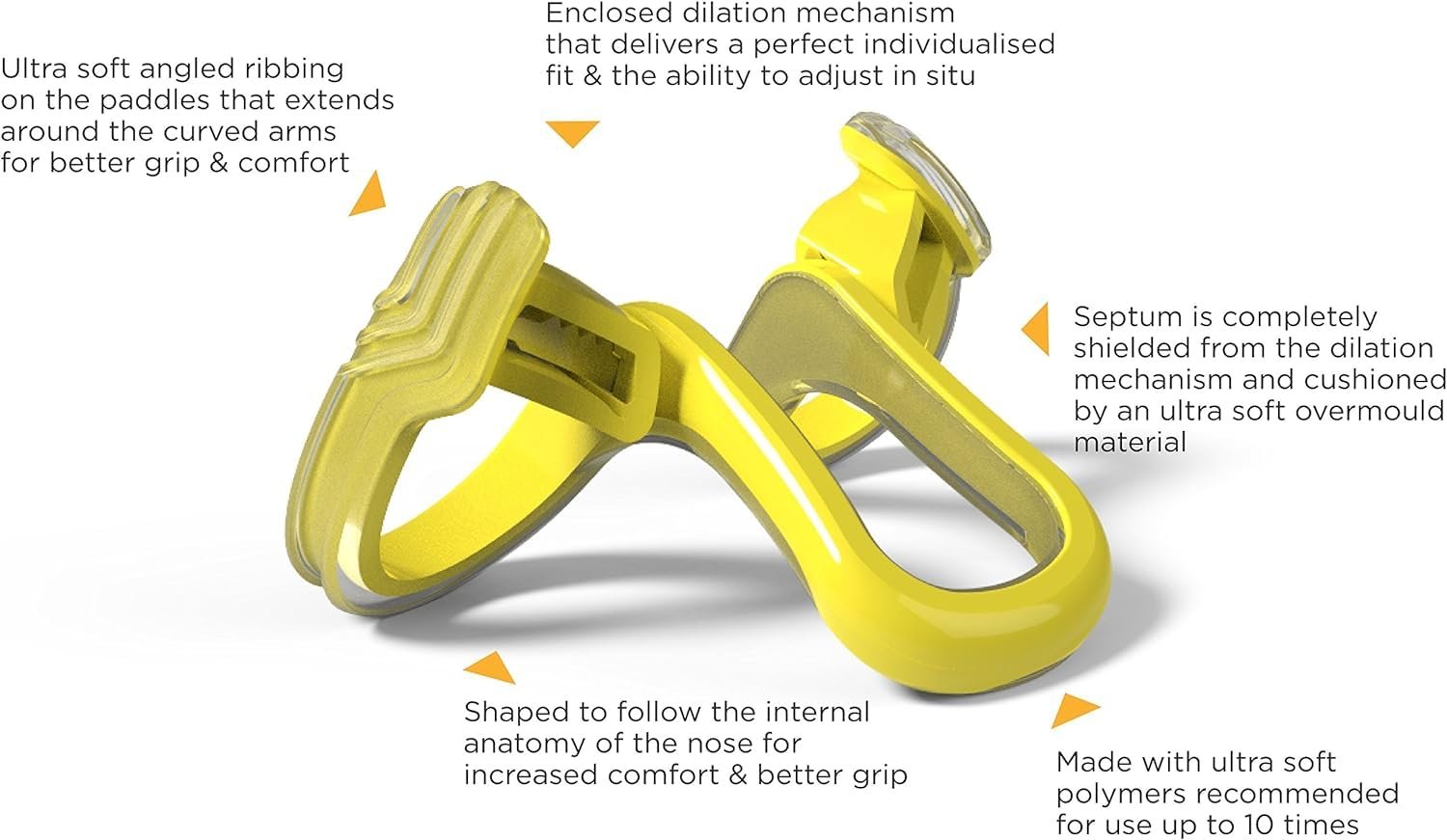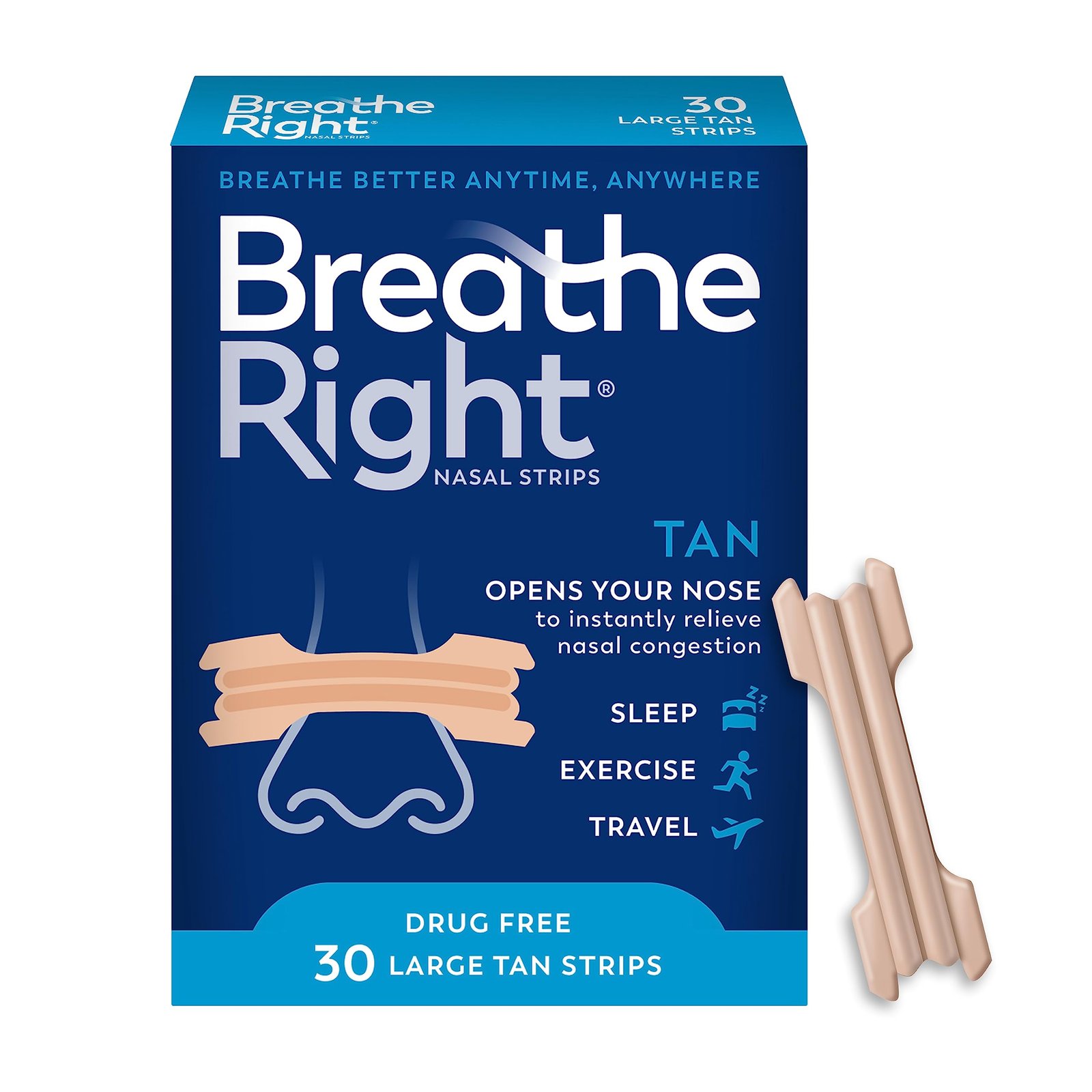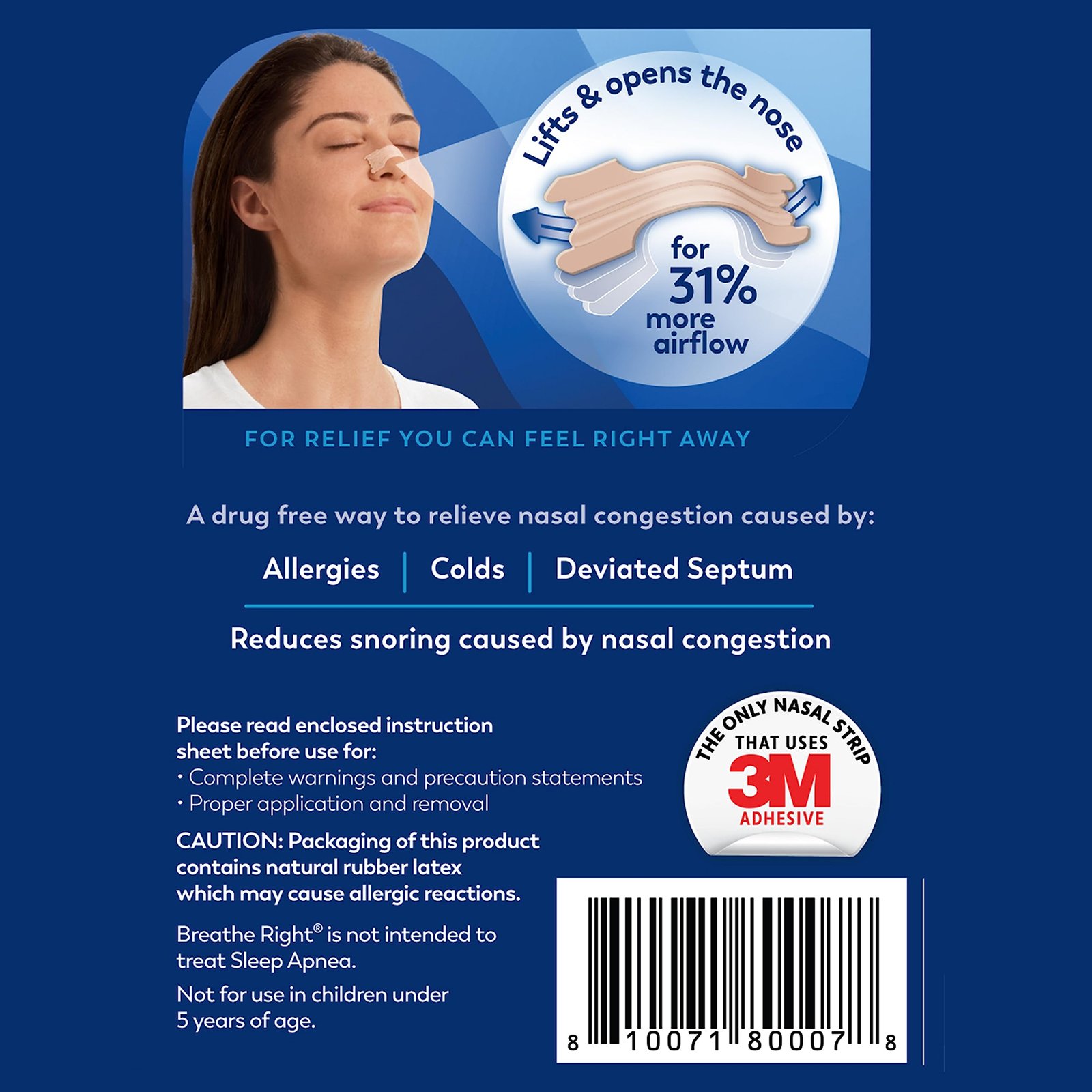Do you struggle with sleep apnea and a deviated septum? Learn how these conditions are linked and explore effective treatment options to breathe easier and sleep sounder. This blog post dives into deviated septum sleep apnea, its symptoms, and solutions for a better night’s rest.
How a Deviated Septum Can Cause Sleep Apnea: What You Need to Know
Table of Contents
Introduction
Do you ever wake up feeling groggy and unrested, even after a full night’s sleep? You might be surprised to learn that a deviated septum and sleep apnea can be linked. While they are separate conditions, they can sometimes influence each other and significantly impact your sleep quality. This blog post will explore the connection between these two conditions, how they can worsen each other, and what treatment options are available. By understanding this link, you can take steps towards a better night’s sleep and improved overall health.

What is a Deviated Septum?
Imagine the wall dividing your nose in half. That wall is called the septum, and it’s made up of cartilage and bone. Ideally, this septum sits straight down the middle, allowing for equal airflow through both nostrils. However, a deviated septum occurs when this wall is crooked or off-center.
While many people have a slightly deviated septum, it often doesn’t cause any problems. But a severe deviation can narrow your nasal passages, making breathing difficult, especially on one side.
Here are some common symptoms of a deviated septum:
- Chronic nasal congestion
- Facial pain or pressure
- Frequent nosebleeds
- Difficulty sleeping due to trouble breathing
- Noisy breathing during sleep (especially in children)
- Reduced sense of smell (in severe cases)
If you experience any of these symptoms and suspect you might have a deviated septum, talking to a doctor (ear, nose, and throat specialist) is recommended for proper diagnosis and treatment options.
What is Sleep Apnea?
Ever woken up gasping for air in the middle of the night? You might be experiencing sleep apnea, a surprisingly common sleep disorder affecting millions.
During sleep apnea, your breathing repeatedly stops and starts. This can happen dozens or even hundreds of times per night, each episode lasting for a few seconds to a minute. While these pauses may wake you up briefly, often you won’t even be aware of them.
There are two main types of sleep apnea:
- Obstructive sleep apnea (OSA): This is the most common type, where your airway becomes blocked during sleep. This blockage can be caused by relaxed throat muscles, enlarged tonsils, or a naturally narrow airway.
- Central sleep apnea: This is less common and occurs when your brain doesn’t send the proper signals to your breathing muscles.
Regardless of the type, sleep apnea disrupts your sleep cycle and prevents your body from getting enough oxygen. This lack of oxygen can lead to a cascade of problems, including:
- Daytime sleepiness and fatigue
- Difficulty concentrating and memory problems
- Irritability and mood swings
- Increased risk of heart disease, stroke, and high blood pressure
- Morning headaches
If you suspect you might have sleep apnea due to chronic snoring, daytime sleepiness, or frequent awakenings at night, consult a doctor for proper diagnosis and treatment.
You may also like Sleep Apnea Without Snoring?
Internal Nasal Dilator – Flexible and Lightweight

Increases airflow to the lungs by 38%.
Available in sizes small, medium, and large.
Nasal paddles are adjustable.
Perfect for cycle racing, sports training, meditation, and yoga.
Use for individual or non-contact team sports.
Can a Deviated Septum Cause Sleep Apnea?
While a deviated septum itself doesn’t directly cause sleep apnea, it can definitely play a role in worsening the condition. Here’s how:
- Narrowed Airway: A severe deviation can significantly narrow your nasal passages. This makes it harder to breathe through your nose, especially when lying down. This can put extra strain on your airway during sleep, increasing the risk of collapse and sleep apnea episodes.
- Mouth Breathing: When your nose is blocked due to a deviated septum, you’re more likely to breathe through your mouth at night. This mouth breathing can further relax the muscles in your throat, making them more prone to collapse and blocking your airway during sleep apnea.
- Sinus Issues: People with a deviated septum are more prone to allergies and sinus infections. These issues can cause congestion and inflammation, further narrowing your airway and worsening sleep apnea symptoms.
In short, a deviated septum acts like a double-edged sword for sleep apnea. It doesn’t cause it directly, but it can definitely make sleep apnea worse and contribute to its negative effects on your sleep quality and overall health.
How Do I Know if I Have Both Conditions?
Figuring out if you have both a deviated septum and sleep apnea can be tricky because some symptoms overlap. Here’s what to watch out for:
- Chronic nasal congestion: This is a common symptom of both conditions. However, with a deviated septum, congestion is usually one-sided, while allergies or infections might cause congestion in both nostrils.
- Facial pain or pressure: A deviated septum can cause facial pain or pressure, especially around the bridge of your nose.
- Snoring: While snoring can be a sign of both sleep apnea and a deviated septum, it’s often louder and more disruptive with sleep apnea.
- Disrupted sleep: Difficulty breathing through your nose due to a deviated septum can make it hard to fall asleep or stay asleep. Sleep apnea also disrupts sleep with frequent breathing pauses.
- Daytime sleepiness: Feeling tired and sluggish during the day is a hallmark symptom of both sleep apnea and a severe deviated septum.
Here’s the key takeaway: If you experience several of these symptoms, especially chronic nasal congestion on one side, facial pain, and daytime sleepiness, consulting a doctor (ear, nose, and throat specialist) is crucial. They can perform a physical examination and potentially recommend a sleep study to diagnose the underlying cause and recommend the best treatment plan for you.
Breathe Right Original Nose Strips

Breathe Right nasal strips open your nose up to 38% more than allergy decongestant sprays alone and can help you reduce nasal snoring.
It’s a drug free snoring aid that provides instant relief for nighttime nasal congestion due to cold or allergies.
Treatment Options: Deviated Septum Sleep Apnea
If you’re diagnosed with both a deviated septum and sleep apnea, there’s good news! Treatment options are available to address both conditions and improve your sleep quality. Here’s a breakdown of the possibilities:
For Deviated Septum:
- Septoplasty: This is a minimally invasive surgical procedure where an ear, nose, and throat (ENT) specialist straightens the deviated septum. This can significantly improve nasal breathing and reduce congestion.
For Sleep Apnea:
- CPAP therapy: CPAP (continuous positive airway pressure) is the gold standard treatment for moderate to severe sleep apnea. A CPAP machine delivers constant air pressure through a mask worn during sleep, keeping your airway open and preventing breathing pauses.
- Oral appliances: These custom-made mouthpieces worn during sleep help hold your airway open by gently positioning your jaw and tongue. They are a good option for mild to moderate sleep apnea or for people who cannot tolerate CPAP therapy.
- Lifestyle changes: Losing weight, avoiding alcohol before bed, and quitting smoking can all help improve sleep apnea symptoms in some cases.
Treatment for Both Conditions:
In some cases, addressing the deviated septum with septoplasty can improve sleep apnea by opening up the airway and reducing reliance on other treatments like CPAP. However, this is not always the case, and your doctor will determine the best course of action based on the severity of each condition.
Remember, consulting with a qualified ENT specialist is essential to discuss your specific situation and develop a personalized treatment plan to address both your deviated septum and sleep apnea.
Benefits of Treating Both Conditions
Taking steps to address both a deviated septum and sleep apnea can significantly improve your quality of life. Here are some key benefits you can expect:
- Improved Sleep Quality: By addressing the underlying causes of sleep disruption, you’ll likely experience deeper, more restful sleep. This translates to feeling more energized and refreshed throughout the day.
- Reduced Daytime Sleepiness: No more battling constant fatigue. Treating both conditions can significantly improve your daytime alertness and concentration.
- Better Breathing: A straightened septum allows for easier breathing through your nose, reducing congestion and stuffiness.
- Fewer Headaches: Chronic nasal congestion from a deviated septum can contribute to headaches. Addressing both issues can lead to fewer headaches and overall improved well-being.
- Reduced Risk of Health Problems: Sleep apnea is linked to a variety of health problems, including heart disease, stroke, and high blood pressure. Treating sleep apnea can help mitigate these risks and improve your overall health.
In essence, treating both a deviated septum and sleep apnea creates a ripple effect of positive changes. You’ll not only experience better sleep but also potentially prevent future health complications and enjoy a more vibrant life.
Living with Deviated Septum and Sleep Apnea
Living with both a deviated septum and sleep apnea can be frustrating, but there are steps you can take to manage your symptoms and improve your sleep quality:
- Maintain a Regular Sleep Schedule: Go to bed and wake up at consistent times, even on weekends, to regulate your body’s natural sleep-wake cycle.
- Create a Relaxing Bedtime Routine: Wind down before bed with calming activities like reading or taking a warm bath. Avoid screen time for at least an hour before sleep.
- Manage Allergies: If allergies contribute to your congestion, talk to your doctor about allergy medications or immunotherapy.
- Maintain a Healthy Weight: Losing weight can help open your airway and improve sleep apnea symptoms.
- Elevate Your Head While Sleeping: Prop up your pillows or use a wedge pillow to improve drainage and ease nasal congestion.
- Use a Saline Nasal Spray: Regularly using a saline nasal spray can help moisten nasal passages and clear mucus buildup.
- Practice Relaxation Techniques: Techniques like deep breathing or meditation can help manage stress and promote better sleep.
Remember: While these tips can help manage symptoms, they are not substitutes for medical treatment. If you suspect you have both a deviated septum and sleep apnea, consult a doctor (ear, nose, and throat specialist) for a proper diagnosis and personalized treatment plan.
Preventing Sleep Apnea
While some risk factors for sleep apnea, like genetics, are uncontrollable, there are lifestyle changes you can adopt to potentially reduce your risk of developing this condition:
- Maintain a Healthy Weight: Excess weight can narrow your airway and increase the risk of sleep apnea. Aim for a healthy weight through a balanced diet and regular exercise.
- Exercise Regularly: Regular physical activity, particularly aerobic exercise, can strengthen muscles that support your airway and improve overall sleep quality.
- Avoid Alcohol and Sedatives: Alcohol and sedatives relax the muscles in your throat, which can worsen sleep apnea. Limit alcohol consumption, especially close to bedtime, and talk to your doctor about alternatives to sedative medications.
- Quit Smoking: Smoking irritates the airways and contributes to inflammation, potentially worsening sleep apnea. Quitting smoking can significantly improve your overall health and potentially reduce sleep apnea risk.
- Manage Allergies and Sinus Issues: Untreated allergies and chronic sinus infections can contribute to nasal congestion and worsen sleep apnea. Talk to your doctor about managing allergies and treating sinus issues effectively.
- Sleep on Your Side: Sleeping on your back can worsen sleep apnea by allowing your tongue to fall back and block your airway. Sleeping on your side can help keep your airway open.
Remember: These preventive measures may not eliminate your risk of sleep apnea entirely, but they can promote better overall health and potentially reduce the likelihood of developing the condition. If you experience symptoms like chronic snoring, daytime sleepiness, or frequent nighttime awakenings, consult a doctor for a sleep study to get a proper diagnosis and discuss treatment options.
Myths and Facts
There’s a lot of misinformation floating around about deviated septum and sleep apnea. Here’s a breakdown of some common myths and facts to set the record straight:
Myth: A deviated septum always causes sleep apnea.
Fact: While a deviated septum itself doesn’t directly cause sleep apnea, a severe deviation can narrow your airway and worsen existing sleep apnea by making it more likely to collapse during sleep.
Myth: Snoring is the only symptom of sleep apnea.
Fact: Snoring can be a sign of sleep apnea, but it’s not the only one. Daytime sleepiness, frequent nighttime awakenings, and morning headaches can also be indicators.
Myth: Only older people get sleep apnea.
Fact: Sleep apnea can affect people of all ages, although it’s more common after middle age.
Myth: There’s no treatment for a deviated septum.
Fact: Septoplasty, a minimally invasive surgery, can effectively straighten a deviated septum and improve nasal breathing.
Myth: CPAP therapy is the only treatment for sleep apnea.
Fact: While CPAP is the gold standard for moderate to severe sleep apnea, other options like oral appliances and lifestyle changes can be effective for mild to moderate cases.
Remember: Don’t rely on myths! If you suspect you have a deviated septum, sleep apnea, or both, consult a doctor (ear, nose, and throat specialist) for a proper diagnosis and explore the treatment options available to improve your sleep and overall health.
Conclusion
Deviated septum and sleep apnea, while separate conditions, can sometimes influence each other and significantly impact your sleep quality. By understanding this link and the treatment options available, you can take control of your sleep health.
Remember, a good night’s sleep is essential for overall well-being. If you experience symptoms like chronic nasal congestion, facial pain, daytime sleepiness, or frequent nighttime awakenings, don’t hesitate to consult a doctor (ear, nose, and throat specialist) for a proper diagnosis. Taking charge of your sleep health can lead to a more restful night’s sleep and a healthier, happier you.
Share this post with anyone who might be struggling with sleep issues!



Comments are closed.